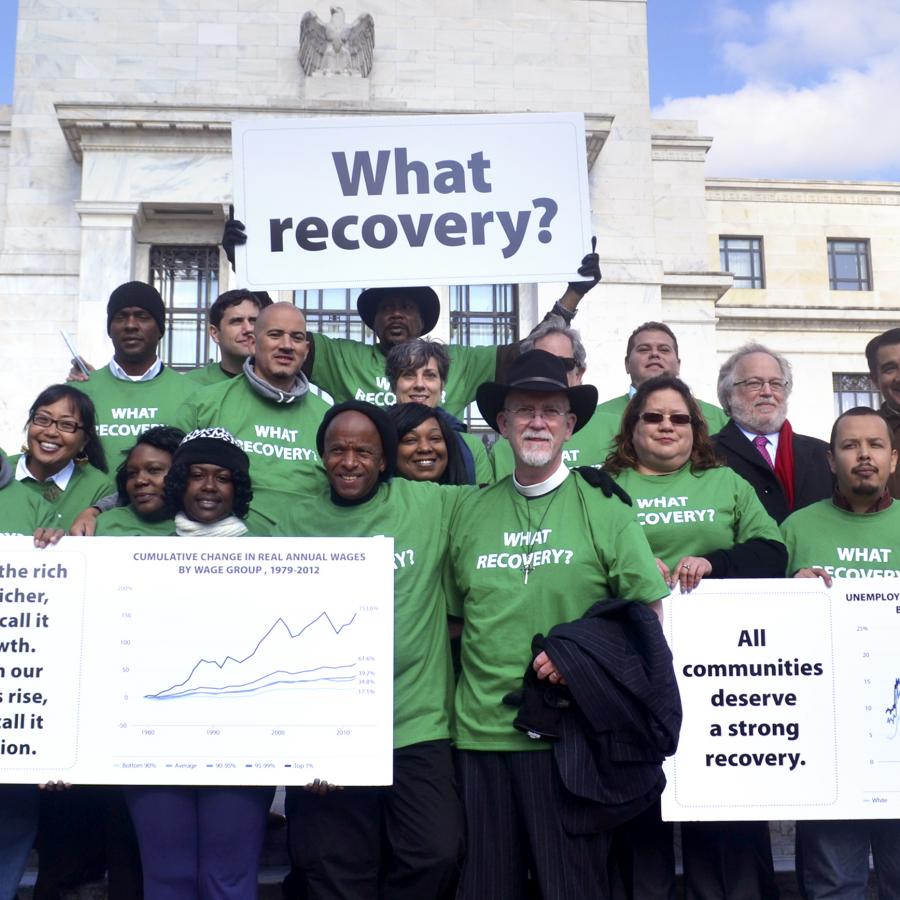Job growth: Connecting all workers to stable jobs that pay family-sustaining wages is essential to achieving workforce equity.
Insights & Analyses
- Occupations in healthcare support and food service are expected to have the fastest growth rate over the next 10 years. Occupations in sales and office administration are expected to have a slight decline over the same period.
- Arizona, Colorado, and Utah are expected to see the fastest overall job growth rate (about 20 percent) over the next 10 years. Hawaii, Illinois, Maine, and Michigan are expected to see the slowest overall job growth rate (less than 1 percent).
- Nationwide, less than half of the top 30 jobs that will see the most new openings over the next 10 years are future-ready jobs.
- If current trends in occupational segregation persist, inequities in access to future-ready jobs will deepen. For Asian American workers, more than half of the top 30 occupations that will see the most new openings over the next 10 years are future-ready jobs. For Black, Latino, Native American, and Pacific Islander workers, less than a quarter of the top 30 occupations are future-ready jobs.
Drivers of Inequity
Historic and ongoing policies — both public and private — have long undervalued the labor of people of color and women, particularly in agricultural, food service, and domestic work. For example, Jim Crow laws restricted Black workers to farm and domestic labor, and business owners across a range of industries have long exploited the social and legal vulnerability of immigrant workers. Deindustrialization and other shifts in capital over the past several decades have led to declining unionization rates, stagnant wages, and increased economic deregulation. These factors, among others, have led to an increased share of occupations that are underpaid, excluded from wage protections, and uncovered by fair labor standard laws. While eliminating racial disparities in employment within high-wage, durable job sectors is a crucial equity goal, it is equally crucial to raise the floor on job quality for all. Shared prosperity begins with equitable wages, safe working conditions, and durable labor protections for the frontline workers who have always fulfilled essential roles in driving economic prosperity and cultivating vibrant communities.
Strategies
Grow an equitable economy: Policies to reach full employment for all
-
Invest in robust, disaggregated data collection and reporting systems and utilize granular insights on differential outcomes to drive systems change.
-
Grow new good jobs by making smart investments in infrastructure projects, supporting economic development strategies to grow high-opportunity industries, and helping entrepreneurs of color start and scale up their businesses.
-
Reduce employment barriers for people with records by "banning the box" — eliminating questions about conviction history on job applications (for private as well as public employers).
-
Connect unemployed and underemployed workers to the jobs created by new development through targeted local hiring, community workforce agreements, and community benefits agreements.
-
Invest a portion of infrastructure investments in job training.
-
Implement sector-focused workforce training and placement programs and apprenticeships that create pathways to good jobs for workers with barriers to employment.
-
Invest in innovative training and credentialing models that democratize the economic benefits of a bachelor’s degree to a wider swath of the workforce, such as paid-on-the-job training and portable, stackable credentials and microcredentials to facilitate upward career transitions.
-
At the federal level, institute a federal jobs guarantee, dedicate 1 percent of infrastructure investments to a fund for inclusive job and contracting supports, set aside a share of public contracts for businesses owned by people of color to mirror area demographics, reform the Community Reinvestment Act to expand access to fair financial products and services for entrepreneurs of color, and ensure that releases from federal prison receive essential identification documents to support job attainment.
Strategy in Action
California law set to improve protections for fast food workers. Over half a million workers in the state work in the fast-food industry, a sector that struggles with low-wages, wage theft, harassment, and overall unsafe working conditions. One in five families with a member in the fast-food sector has an income below the federal poverty line. In September 2023, Governor Gavin Newsom signed the Fast Food Industry legislation, AB 1228, into law which raised the minimum wage of fast-food workers to $20 per hour and established a nine-member Fast Food Council made up of fast food workers, union representatives, and fast-food industry and franchise representatives to create minimum standards of wages and working conditions. Labor advocates including the Service Employees International Union (SEIU) believe that this legislation is one of the biggest pieces of labor law passed in the past decade as well as a step towards sectoral bargaining. A 2024 study found that this legislation led to an 18 percent increase in hourly wage for fast-food workers without reducing employment. Similar efforts have passed in New York and Seattle. Read More.

Resources
- Reports: Race and the Work of the Future: Advancing Workforce Equity in the United States; How Covid-19 Is Affecting Black and Latino Families’ Employment and Financial Well-Being; 10 Principles for a Federal Job Guarantee; Exploring Targeted Hire; Despite Continued Job Growth, Long-Term Unemployment Persists; Hiring Bias Black And Latino People Face Hasn't Improved In 25 Years
- Data: Opportunity Insights Economic Tracker (Low-Income Employment); Metro Monitor; State of Working America; Understanding Long-Term Employment



